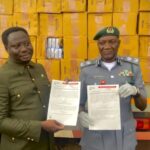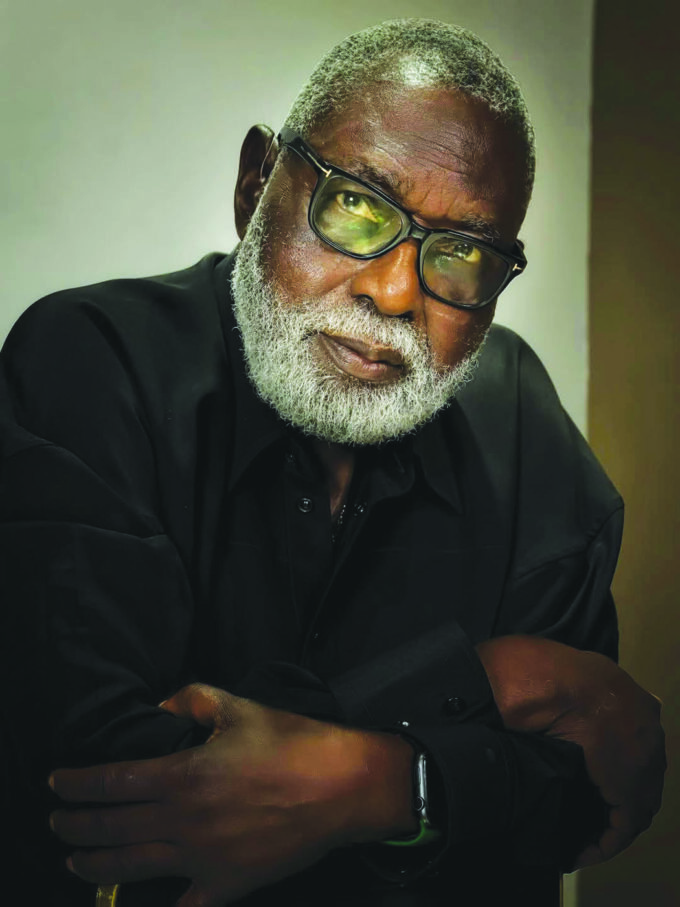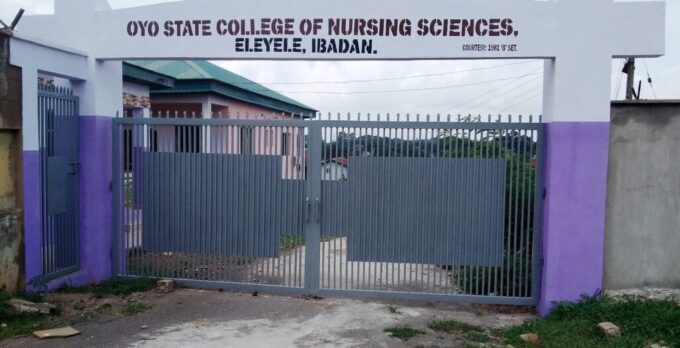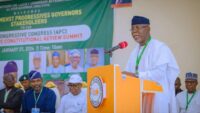By Steve Agbota
“Nigeria has no business with poverty if only it could harness its enormous maritime potential”.
This is a general consensus among maritime and economic experts who insist that the sector could trigger an era of economic renaissance if a cocktail of strategies is brewed around the sector.
On their solution list is the urgent need to resurrect the national shipping fleet and participate in various juicy cabotage contracts currently enjoyed by foreigners.
This will also revive Nigeria’s seafaring sub-sector that remains untapped so far.
According to analysts, the seafarer industry has huge economic potential to generate trillions of naira annually for the government coffers if repositioned. But unfortunately, the industry cannot compete favourably with its foreign counterparts who have identified seafaring export as a niche market.
For years, the Federal Government has invested heavily in training Nigerian seafarers abroad. Yet, the nation continues to lose an estimated $7 billion annually in potential revenue from an untapped seafaring export market—largely due to its inability to recognize seafaring as a niche business with vast economic opportunities.
Despite Nigeria’s expansive coastline and a population of over 200 million, the country has failed to prioritize seafaring export as a strategic sector. This stands in stark contrast to smaller nations that have deliberately positioned seafaring as a comparative advantage.
The Philippines provides a striking example. The country has deliberately made seafaring a cornerstone of its economy, with its nationals accounting for nearly 20 percent of the global seafaring workforce. Each year, Filipino seafarers remit at least $7 billion back home, the same amount Nigeria forfeits annually by neglecting this sector.
Investigations by Daily Sun further reveal the depth of the disparity. The Philippines boasts about 75 training institutions dedicated to seafaring and related professions, with India also recording strong numbers. Nigeria, on the other hand, relies mainly on the Maritime Academy of Nigeria (MAN) in Oron and a handful of under-equipped private institutions that fall short of global standards.
Stakeholders warn that Nigeria risks being left behind, as neighboring Ghana has already made more progress in harnessing the seafaring business. Nigerian seafarers, they lament, are often rejected by international shipping companies due to poor training standards and the lack of globally recognized Certificates of Competency (CoC).
To address this gap, the Federal Government, through the Nigerian Maritime Administration and Safety Agency (NIMASA), launched the National Seafarers Development Programme (NSDP) in 2009. Between 2011 and January 2015, NIMASA reportedly spent over N20 billion on training 2,500 cadets abroad. Yet, despite these efforts, the country has not built the institutional backbone needed to transform seafaring into a sustainable export sector.
Since the training had not contributed to any measurable national development, the Federal Government, in 2019, suspended the National Seafarers Development Programme (NSDP), which sponsored the training of cadets abroad. Many stakeholders had considered the programme a waste of resources.
Even the then Minister of Transportation, Rotimi Amaechi, disclosed that he never approved the training of cadets outside the country since assuming office in 2015. According to him, sending cadets abroad stifled the growth of the Maritime Academy of Nigeria (MAN), Oron, which has recorded years of stagnation.
He lamented that the academy’s progress was hindered because Nigeria kept sending cadets overseas for training, only for many of them to return and join the unemployment queue.
“Nigeria should have the same type of institution we are sending our people to abroad, but located here in Nigeria. If we stop training people overseas, they will be compelled to ensure that this place (MAN, Oron) is improved upon,” he said.
Daily Sun also gathered that seafaring academies in Egypt and Ghana were established around the same time as Nigeria’s Maritime Academy, yet the Nigerian institution continues to lag behind its contemporaries in Africa.
Findings further revealed that MAN, Oron, and other allied institutions still lack the capacity to adequately prepare seafarers for globally recognised certifications such as the Certificate of Competency (CoC) under the STCW-95/2010 convention.
Stakeholders who spoke to Daily Sun blamed the government for the woes of Nigerian seafarers, accusing it of failing to provide adequate training, retraining, and opportunities to position them for global relevance.
In a telephone interview with Daily Sun, Aminu Umar, Nigerian shipowner and President of the Nigerian Chamber of Shipping (NCS), explained why Nigeria has struggled to produce seafarers for the international market.
“The question is very dear to us, especially to me as an investor in shipping who has trained many seafarers in Nigeria. When you compare Nigerian seafarers with their Filipino counterparts, there are many lessons we need to learn.
“One of the key lessons is access to training facilities. Filipino seafarers have access to world-class training centres, while our seafarers do not. Seafaring training is divided into three stages. Stage one is classroom training. Stage two is onboard training, which takes place on a vessel. Stage three is continuous professional development, even after employment, to enhance capacity.
“In the Philippines, all three stages are strengthened. The government provides quality academic training, ensures access to onboard training, and guides enhancement training closely. In Nigeria, this structure is weak,” he explained.
He added that this gap puts Nigerian seafarers at a disadvantage globally.
“This is an area where we face serious challenges, and we must catch up. Beyond that, we need a strategy. The government and industry must work together to encourage young Nigerians to see seafaring as a lucrative career worth pursuing and investing in.
“We should not treat it as a fallback option for those with no other opportunities. Because of this mindset, some young people, after being trained, abandon seafaring altogether.
“In countries like the Philippines and India, governments and society deliberately create awareness campaigns, showing young people that seafaring is a rewarding career. Parents are even eager for their children to pursue it. Nigeria must do the same,” Umar stressed.
He further noted that awareness and promotion are key.
“There’s a huge lack of awareness here. Our agencies, industry players, and academies should showcase what seafaring offers. In countries like the Philippines and India, unions and associations actively promote their seafarers to international shipping companies. In Nigeria, this is almost non-existent.
“Even in Africa, Ghana does a better job of marketing its seafarers than we do. If we want Nigerian seafarers to compete globally and contribute meaningfully to our GDP, we must showcase their competence, ensure proper certification, and build a reputation for discipline,” he added.
Also speaking with Daily Sun, the Managing Director of Kamany Marine Services Limited, Charles Okorefe, said it is doubtful Nigeria can match the Philippines in seafarer development anytime soon.
According to him, the Philippines deliberately made seafaring a niche sector of its economy.
“The question I keep asking is: where are our training institutions? The focus is always on MAN Oron. The Philippines has between 50 and 75 dedicated institutions training seafarers, while we rely on just one academy and a few private ones that are neither here nor there.
“That’s why Filipinos dominate the global market, it is intentional. It’s their area of competence. There is hardly any foreign vessel that does not have a Filipino on board.
“How do we engage our own seafarers without national fleets? Where are our ocean-grade, Nigerian-registered vessels to absorb them before we even think of international placements? We don’t have them. That’s the starting point,” he said.
Okorefe further criticised the NSDP, describing it as a failed programme.
“The NSDP of NIMASA is a fiasco. Many cadets sent abroad returned frustrated. If we are serious, we must empower our institutions and strengthen the credibility of our Certificates of Competency. Our seafarers must be trained to global standards to compete effectively.”
He emphasised that manpower development is central.
“The Philippines built an ecosystem of training and retraining, producing a steady supply of world-class seafarers. Nigeria has not. That is the difference. Unless we develop credible institutions, strengthen certification, and train competent instructors to teach the fundamentals of seafaring, we will continue to lag behind. These are the issues at stake,” he concluded.


















Leave a comment